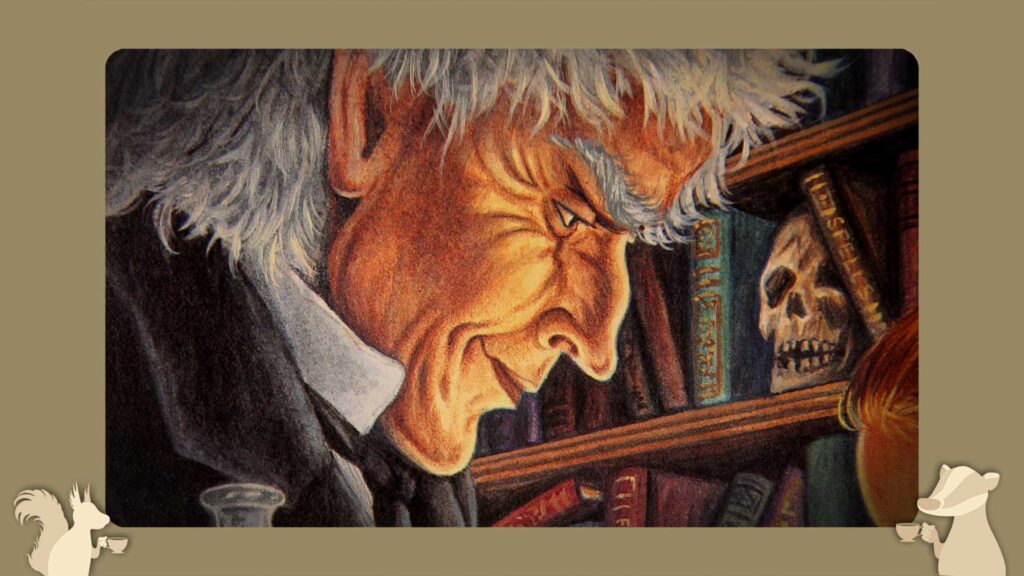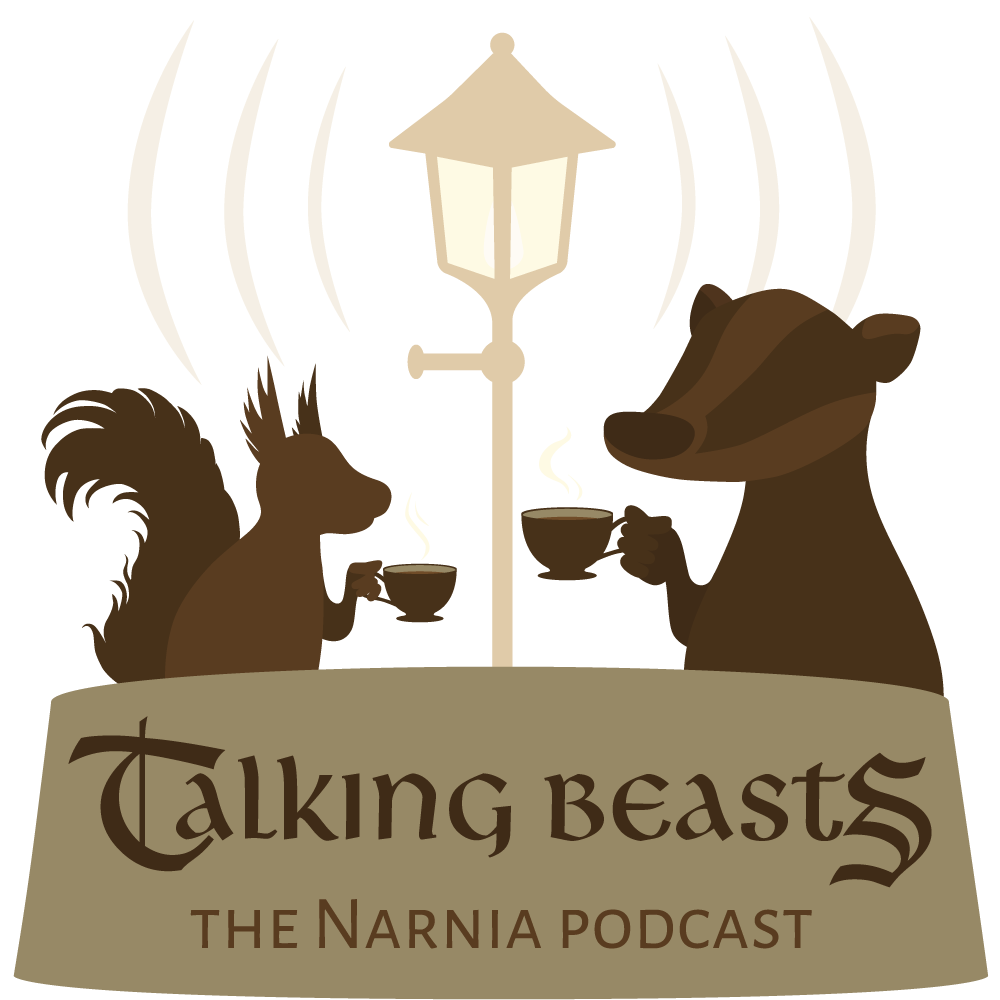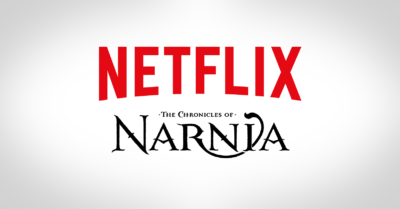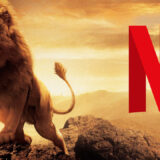Do Uncle Andrew and Reepicheep Have Something in Common? | Talking Beasts

Podcast: Play in new window | Embed
We are beginning a new series discussing The Magician’s Nephew chapter by chapter! Why does C.S. Lewis explain the magic and the rings in such detail (in direct contrast to the other books)? And what does Andrew Ketterley really want? Listen to our discussion and post a comment below!
Related links:
- Bonus video: Part 2 of this discussion
- The 8th Narnia Book C.S. Lewis Started Writing | Talking Beasts

Listen to more episodes of Talking Beasts: The Narnia Podcast.






The Magician’s Nephew was also the first book I’ve read in the series as a ten year old. However, I was aware that it wasn’t published that way. I even had a girl in my Sunday School class, when we were doing The Magician’s Nephew, said, “Never trust your uncle again.”
I’m quite excited to see the film adaptation of this book. It has so much potential to be both cool and unique!
I’d never seen Andrew as someone who’s motivated by awe of the unknown, but I guess he may have had that once and lost it when he realized that the pursuit of magic promised power. It probably started with curiosity when he opens Mrs. Lefay’s box, but he then slid into selfishness and vanity as he got older and less “childlike” (and his growing desire to manipulate his discoveries drove him to become a magician).
Great discussion, guys!
That will be interesting. It is not certain if Netflix will go in publication order and start over with The Lion, The Witch, And The Wardrobe or will they take a new turn and start with The Magician’s Nephew?
I’ve never thought of Uncle Andrew having something in common with Reepicheep, with seeking the unknown. I think Emeth from The Last Battle could fall into this trope as well. He volunteers to go into the stable to see Tash face to face. In a away, he is willing to seek out the unknown in the stable.
It’s kind of surprising that Uncle Andrew became a nicer person at the end of the book. Villains can change, and Lewis realized that too. Maybe he didn’t want his readers to hate Andrew completely, or he wanted to be kind to someone who wasn’t nice in most of the story. 🙂
I think they started with The Magician’s Nephew, I think it would be a mistake to start with The Lion, The Witch and the Wardrobe again, that book is already very marked for the general public and it would be like “this again?”
Great podcast, guys! I really enjoyed reading these two chapters again. I got literal goosebumps when Digory gave he speech about fairy tales being more or less true and his confidence that Uncle Andrew would get his comeuppance in the end!
I think glumPuddle is on to something with Uncle Andrew having a desire for more than just power and prestige. You get the sense he wouldn’t be content merely with a life as a company CEO or politician.
I think Lewis may have been drawing on his own temptations toward the occult when he was younger. This passage from Chapter 4 of “Surprised by Joy” might be relevant:
“But now, for the first time, there burst upon me the idea that there might be real marvels all about us, that the visible world might be only a curtain to conceal huge realms uncharted by my very simple theology. And that started in me something with which, on and off, I have had plenty of trouble since–the desire for the preternatural, simply as such, the passion for the Occult. Not everyone has this disease; those who have will know what I mean. I once tried to describe it in a novel. It is a spiritual lust; and like the lust of the body it has the fatal power of making everything else in the world seem uninteresting while it lasts. It is probably this passion, more even than the desire for power, which makes magicians.”
I’m not sure if the novel in question is MN, but both were released in 1955 so it would have been on his mind. Either way, I think this “spiritual lust” might be a good way of describing Uncle Andrew’s motivations.
It almost seems like “sehnsucht” (what Reepicheep feels towards Aslan’s Country) gone wrong, a beautiful sensation and a sign post to one’s true home which has been perverted.
I love that you guys are doing this Narnia book because it’s one of my favorites. And I actually really love the first chapter. Digory and Polly feel more real to me than the other Narnian protagonists, I think, because we get so much information about what kind of stories they like to read and what kind of games they like to play. Even though I’m (technically) a grownup, I always get sucked in reading about the empty house and the crawl through the rafters. If we ever get a Magician’s Nephew adaptation, I hope the director can make that part creepy and not just the “real” creepy stuff later.
I’m also not bored with all the exposition in the second chapter because….well, it’s just really interesting exposition! And there’s a great bit of foreshadowing at one point. When Uncle Andrew starts to explain the significance of the dust, Digory is “interested in spite of himself.” He and his uncle aren’t as different as they seem at this point.
After pondering about it for a while, I’ve come up with the theory that Uncle Andrew isn’t so much fascinated by the possibilities of other worlds himself, but he understands that a lot of other people would be and that he could get a lot of admiration from them if he discovered them. That’s the best way to reconcile his language with his attitude later in the story. If true, I don’t this would contradict the idea that he’s more complex than your average Narnia baddie. It shows that he some kind of empathy and imagination. If we do interpret him as a tragic villain (well, a tragic-comic villain), it makes the ending interesting in that Uncle Andrew loses his main flaw, his selfishness, but, alas, also seems to have lost his potential redeeming quality, his sense of wonder.
Like Gymfan mentioned, the most obvious difference between Reepicheep and Uncle Andrew (maybe not the most important difference, but a very noticeable one) is that Reepicheep is willing to take risks himself to explore while Uncle Andrew maneuvers others into taking risks for him as much as possible. (Well, Reepicheep did make others take a risk at Dark Island. That was kind of jerky of him. But even then, it’s not like he wasn’t taking the risk too. Though I guess if it comes to that, Uncle Andrew is sort of risking his own neck in this part of the story. If it got out that Polly disappeared in his study, never to be seen again, it would be really bad for him. People probably wouldn’t believe that he’d banished her to another universe, but they’d assume something pretty bad.) You know, it occurs to me that if Uncle Andrew has a tiny bit of one of Reepicheep’s virtues, Reepicheep also has a tiny bit of one of Uncle Andrew’s vices, his lust for personal glory.
I like what Glumpuddle pointed out about Polly being impetuous and making a bad decision in this part of the book when later she’s the more cautious one. It’s things like that that make the characters feel real to me even though the book’s not about in-depth characterization.
It was great fun to have Gymfan in a book analysis episode. Her idea for an opening montage sounded really cool.
That’s a great point! I didn’t realize he released both those books at the same time- the connection could well be real, and is a good explanation for his thoughts on Uncle Andrew.
In my humble opinion Uncle Andrews curiosity is limited within a scope of self interest, though he does have a thirst for the unknown he goes into it with a secret hope that it would benefit him personally.
Not sure if anyone has ever caught this, but Fay is a literary term for fairy and Le means “The” in French. Thus, Uncle Andrew’s godmother’s last name literally means “The Fairy”. Excellent easter-egg from Lewis!
Glad the book commentaries are back. Love the work you guys do!
LeFay is also a famous surname in Arthurian stories. Morgan Le Fay was an evil user of magic and various sorts of enchantment. She was no good for Arthur and all his plans for a just and good society/